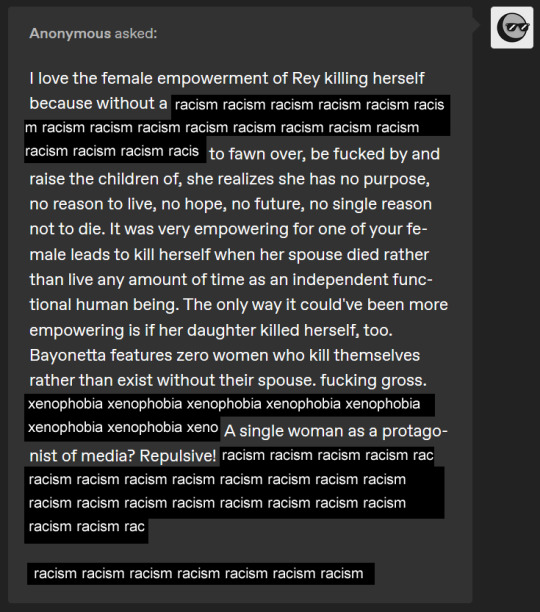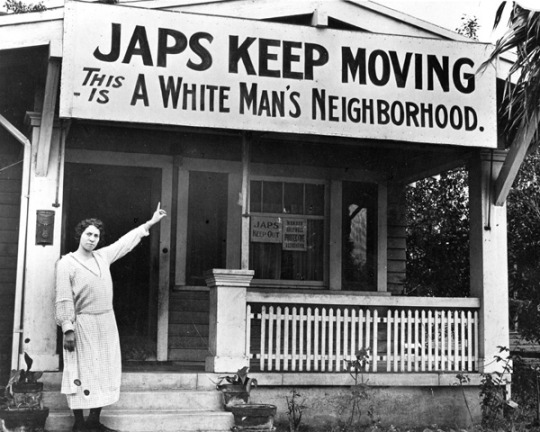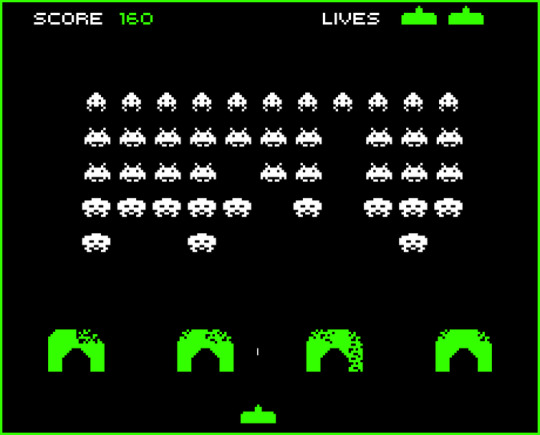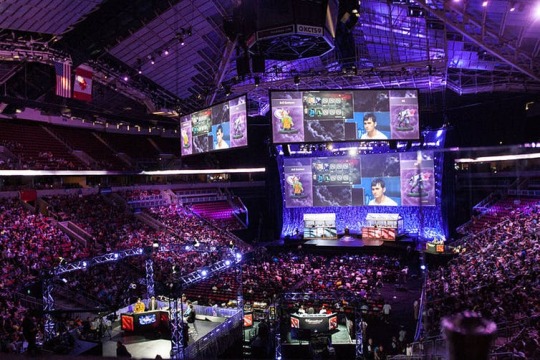#japanophobia
Text

Tags on that awful Miyazaki post.
The op loves house of the dragon
#idc if you like the show#but you can't say shit like this while watching it#racism#aapi racism#xenophobia#hayo miyazaki#house of the dragon#japanophobia#studio ghibli
2 notes
·
View notes
Text
Don't know why I woke up thinking about Pearl Harbor (the event) this morning.
Reblog if you also remember sitting in history class like, "So there was an unannounced attack on a naval base, and we retaliated by... nuking civilians?! It sounds like there's something you're not telling me!"
And it turns out... there was! Yaayyyyyyyy....
youtube
But seriously, this plays out time and time again in our history. We are told stories of completely disproportionate response, political actions that clearly betray some sort of ulterior motive, and are asked to accept that what our leaders did was the only logical way to react. And the disturbing thing is, most of us do. The same thing is happening right now in Gaza.
5 notes
·
View notes
Text

Well this has layers. So the... blunted version of what's obscurred is
Calling Aliana fetishistic arm candy despite her being the main character
Generalizing Japan by suggesting the way one man there writes women is indicative of how the entire country writes and views women (weebs stop associating Japanese conservatives with the entire culture challenge).
Calling me a "pretendian" and calling my puppet "brownface" and talking about "white man's burden" in regards to *checks notes* criticism of a fictional British woman in relation to *checks other notes* another fictional British woman.
Now aside from the fact that comparing TSR!Rey (a family oriented woman who wants to rest after saving the galaxy) and Bayonetta (a walking BDSM fetish library) is inherently never going to work because the two characters were written from very different inspirations, there's another big problem that Anon seems to have missed. That being
REY ISN'T DEAD YOU UNHINGED FUCKING LUNATIC!
#tw - racism#tw - misogyny#tw - xenophobia#tw - nipponophobia#tw - japanophobia#anon needs a therapist
18 notes
·
View notes
Note
Thoughts on Mael Stronghart?
In a vacuum, he's a good villain. I like his clock (and pigeon lol) motif, that ties with him being a general control freak, almost like an evolved version of Manfred. I like that he, like Simon Keyes, technically did nothing that he could be prosecuted for, and he did a generally good job at covering his tracks. Seeing him in the judge's seat is terrifying. He's very nonsense, but quirky enough to fit in the setting. And I like his theme and design lol.
I just... feel that the story they wanted to write didn't need a villain like him?
Aside from the fact that you can tell the dude is the main bad guy from the moment you set your eyes on him, which is way early into the game... GAA's story was about the corruption of the British Empire. It was about systemic injustice, xenophobia, the power of the big against the small. The climax of the first game is a Japanese man, victim of japanophobia and carrying his Japanese values, defending a young pickpocketing girl from the slums against the whole government. Barok in that game is meant to represent all the privileges Ryuu didn't have, while still showing an inkling of humanity and the hope for change.
And then it turns out that it's all one guy's fault (including giving Barok trauma, instead of allowing him to be someone shaped by his imperialistic society) and if we manage to send him to jail everything will be fine 🙃
AA does this a lot, to be honest. The Dark Age of Law that is kickstarted after two cases and is over after one. Khura'in's batshit politics that can be apparently fixed after sending the queen in jail - because she wasn't the right queen, you see!
Admittedly the format of the series can't really allow you to... reform a whole government lol. It's just that Stronghart feels like he exists to give you a final foe to take down.
15 notes
·
View notes
Text
Someone tell anon bitch to tell her handlers at the asylum to educate her on Russian ethnicity cause Fyodor is slavic, so her slavophobia is ugly. Also Chuuya is pure Japanese so her japanophobia is extra ugly cause she is taking pot shots at a ptsd survivor of human experimentation as well.
6 notes
·
View notes
Text
hi. if you see the below post on your dash, do not fucking reblog it.

if it isn’t abundantly clear, this is literally a meme of a white supremacist engaging in white supremacy, a vein of white supremacy that resulted inthe 1942 incarceration of all japanese-americans on the west coast, in which a literal racial slur has been covered up for a cheap tumblr witch joke. here’s the original image:

if you need context for the original photo, here’s a thread. the meme post has over 18,000 notes. you can see where it even blurs out the slur that appears in the window. if you don’t understand how this is harmful... i literally don’t know what to tell you. i have no idea who raven-crow is or their heritage, or if the meme originated with them, but this is unacceptable. please reblog this post to spread awareness and do not circulate the other.
9K notes
·
View notes
Text
back in wwii and the 00s, japanophobia and islamophobia made sense. they were wrong, but there was an actual cause to it, attacks on american soil, which was in turn exacerbated by media and politicians.
this new bout of russiaphobia is exclusively caused by media and the politicians. there is no attack, not even an implication of an existential threat for americans. people are wanting to bring back internment camps for something that happened in another country. it's in every sense of the word insane.
3 notes
·
View notes
Text
remember that jpnese tumblrina who was ready to be like "japanophobia is actually way way way way worse than any other kind of asian racism because too many weebs online watch anime which only hurts japanes epeople" and so many white people just ate it up. like doesn't your family have a city 2 pillage or something
6 notes
·
View notes
Text
What 40 years of 'Space Invaders' says about the 1970s – and today
by Lindsay Grace

The iconic shooting game in its original stand-up arcade form. Jordiferrer, CC BY-SA
The “Space Invaders” arcade video game, celebrating its 40th anniversary, is an iconic piece of software, credited as one of the earliest digital shooting games. Like many early games, it and its surrounding myths showcase the cultural collisions and issues current at its creation by Japanese game designer Tomohiro Nishikado.
As a game designer and teacher of games, I know how meaning is carried from designer to the mechanics of play. As a game studies researcher, I also know how games reveal myth, meaning and culture.
An analysis of “Pac-Man,” for instance, shows how that game embodies many values of its day – including consumerism, drug use and gender politics. The message in “Space Invaders” is as basic as the graphics: When faced with conflict, players have no option except to blast it away.
Avoiding an enemy only delays the inevitable; players cannot move forward or back, but can only defend their space. There’s not even a reason why the invasion is occurring. Players know only that the invaders must be destroyed. It’s a distinct cultural perspective, emphasizing shooting over everything else.

Defense is the only option against a never-ending onslaught. BagoGames, CC BY
A historical pioneer
The history of many shooting games can be traced to “Space Invaders.” It’s not the first – MIT’s “Spacewar!” was earlier, in 1961 – but “Space Invaders” is among the most copied. Even people who never played the original “Space Invaders” have likely played the more than 100 clones of it – including the first advertising game, “Pepsi Invaders.”
youtube
‘Spacewar!’
The release of “Space Invaders” foreshadowed the growth of the Japanese games industry, which itself was seen as a fearsome cultural invasion of the U.S. by Japan. The tension was expressed in popular media as a defense of American individualism against the power and efficacy of Japanese collectivism and corporate culture. This tension displayed itself in popular media like the comedy film “Gung Ho” as a combined Japanophobia and Japanophilia.
“Space Invaders” also highlighted how tenuous some elements of Western identity were. The U.S. had built its sense of self on being the greatest, but was being challenged by Japanese economic growth. But it was complicated: As Japanese automakers won customers from the American car companies, they began to build their cars in the U.S. – so were they Japanese or American cars?
youtube
A game of ‘Space Invaders.’
In the same way, if the American game maker Atari’s biggest hit was a Japanese-made game, how American was Atari’s success? In any case, millions of U.S. consumers bought the Atari 2600 game system to be able to play the hit arcade game “Space Invaders” at home. Five years later, in 1983, the games industry crumbled in large part because American-made games were not interesting and too similar to each other.
In 1985 the Japanese-made Nintendo Entertainment System ushered in a new era of home console play. That continued the challenge to the American identity: U.S. companies failed to innovate and lead, and a Japanese company filled the innovation void.
The myths of (space) invasion
“Space Invaders” also has collected some myths around it, which reveal more about society than about the game itself. The most notable legend is that “Space Invaders” was so popular that the Japanese economy ran out of the coins needed to play it in arcades. It’s not true, but like many myths about games, both positive and negative, it sounds so good it’s easy to champion anyway.
That fable is a prequel to larger popular fictions about games. People blame games for the decline of economies and for joblessness. The innovations created in games support technological innovations that change society and the way people socialize, yet people are also eager to blame large systemic issues like gun violence in schools on video games.
Another tale is that “Space Invaders” demand was so strong that even with multiple game machines installed, there were lines to play. Whether or not they were queuing up for their own turns, it’s definitely true that people watched others play. That helped set the stage for the growth of arcades and LAN-gaming parties, precursors to professional players and today’s multi-billion-dollar industry of e-sports.

An arena packed with people watching others play video games. Sam Churchill, CC BY
History shows that games change society, pointing it toward play and creating new economies. The advent of arcades was as novel as the contemporary use of the micro-transactions common in mobile games now. Their incubation of community and spectator play spawned countless YouTube gaming channels.
Like the space invaders that descend on the player, unknown but always threatening, games scare some people. They seem to be unrelentingly approaching, different and hard to keep pace with. Games challenge players to adapt and dismantle the conventions under which people hide.

But, like playing “Space Invaders” itself, the joy comes in interacting with that change, mastering it and moving on to the next level.
Lindsay Grace is Associate Professor of Communication and Director, American University Game Lab and Studio at the American University School of Communication.
This article was originally published on The Conversation, a content partner of Sci Fi Generation.
12 notes
·
View notes
Text
discrimination terms
ableism: discrimination towards and oppression of disabled people, sometimes also called disableism.
audism: specific form of ableism that affects people who are deaf or have hearing difficulties, at times has been known to apply to those who are mute
sanism: specific form of ableism that affects mentally disabled people, particularly for those whom the term “insane” would apply (examples: personality disorders, psychosis, schizophrenia, etc)
healthism: discrimination towards and oppression of people with chronic health conditions (including STIs, cancer, diabetes, etc), often overlaps with ableism
serophobia: specific form of healthism that affects people with HIV or AIDS, which often overlaps into homophobia/queerphobia/transphobia
fatphobia: discrimination towards and oppression of fat people, especially fat women, sometimes called sizeism
ageism: discrimination towards and oppression of people by their age, particularly affects the elderly and minors
antisemitism: discrimination towards and oppression of Jewish people
christophobia: discrimination towards and oppression of Christians, does not apply in much of the west (US, UK, Europe, etc)
islamophobia: discrimination towards and oppression of Muslims
racism: discrimination towards and oppression of people by their race
colourism: subcategory of racism that discriminates and oppresses people by the darkness of their skin
xenophobia: discrimination towards and oppression of people by their country of origin and sometimes race and/or ethnicity; often overlaps with racism
misogynoir: a combination of racism, colourism, and misogyny; the description of the intersection of oppression between being black and being a woman
orientalism: specific form of racism that affects Asian people
anti-romani: discrimination towards and oppression of Rroma people [edit] antiziganism is a common word used, however some rroma people find it offensive because “zigan” is the german word for “g*psy”
arabophobia: specific form of racism that affects Arab people
armenophobia: specific form of racism that affects Armenian people
germanophobia: specific form of xenophobia that affects Germans
italophobia: specific form of racism and/or xenophobia that affects Italians
japanophobia: specific form of orientalism that affects Japanese people
sinophobia: specific form of orientalism that affects Chinese people
russophobia: specific form of xenophobia that affects Russian people
sexism: discrimination towards and oppression of people by gender; a synonym for misogyny
misogyny: discrimination towards and oppression of women
marxogyny: describes the tendency for anti-capitalism to target and focus on “women’s" industries and products when criticizing capitalism (big examples being fashion and beauty industries)
whorephobia: discrimination towards and oppression of sex workers, primarily affects women
homophobia: discrimination towards and oppression of gay people or gay men, but also used to describe discrimination towards and oppression of any LGBT+ person
lesbophobia: specific discrimination towards and oppression of lesbians
queerphobia: discrimination towards and oppression of LGBT+ people
difemphobia: specifically describing the discrimination towards and oppression of all women-loving-women
aphobia: describes discrimination towards and oppression of asexual and aromantic people as a whole
-- arophobia is specific for aromantic oppression and acephobia is specific for asexual oppression
biphobia: specific discrimination towards and oppression of bisexuals
-- panphobia, polyphobia, and etc can be used to describe specific discrimination for other “bi umbrella” orientations, though biphobia is the “norm” catchall term
sapphobia: specific form of biphobia that affects bi women
transphobia: discrimination towards and oppression of transgender people
transmisogyny: a combination of transphobia and misogyny; the description of the intersection of oppression between being transgender and being a woman
binarism / exorsexism: specific form of transphobia that affects nonbinary people and insists on a gender binary, sometimes called enbyphobia or nb-phobia
intersexism: discrimination towards and oppression of intersex people, also called dyadism
heterosexism/heteronormativity: describes social insistence on a male/female model for relationships, often erasing same-gender relationships’ existence, it is a companion of homo/queerphobia
cissexism/cisnormativity: describes social insistence on certain bodies, body parts, behaviours, and appearances being inherently male or female, often overlaps with sexism and homo/lesbophobia, it is a companion of transphobia
3 notes
·
View notes
Note
hi, so yesterday i was expressing to my friends that the term j*p was offensive to me, and they kept throwing it around as a joke. i got angry and they accused me of getting too offended and that i am racist as well (though i do not remember one instance where i did anything to signify that). i had to leave our group server and now i'm convinced that everyone doesn't like me just because i got upset at the use of j*p. (1/2)
(2/2) btw, the term is offensive because it was used during ww2 in japanophobia propaganda and to refer to the whole of us that were shoved into internment camps despite having full US citizenship.
Hi there,
You clearly have a right to be upset about that because that term really is quite offensive. Also, if they were all white then I don’t understand how you could have even been racist, so clearly they’re uninformed and ignorant. Honestly if these people are going to treat you like this then you shouldn’t hang out with them because you shouldn’t have such rude and negative people around you. I’m really sorry they did this but please know that they’re in the wrong and that you did absolutely nothing wrong. If you highly value your friendship with any of them then bring this up and explain to them why it’s offensive and see what their response is, but if they are still rude about it then I think it’s better for you to have other friends. I hope this helps you.
- Liam
6 notes
·
View notes
Note
Not to drag up drama, I'm just curious about something. Regarding the whole "japanophobia" thing, one person made the remark that "Lily doesn't care about the people or the culture, just the country." Do you think this is fair?
Well, no. I mean if that's your issue with me, that's your issue, but the only time Japan comes up is when a single industry in the country comes up (two if you could video games), and usually only when weebs are malding. And none of my criticisms of the industry are new, or even western in perspective.
This is stuff that has to be talked about for work. But as I mentioned in a previous ask, any other interest is something I keep an extremely tight lid on. If I showed the enthusiasm, they would lunge at it, because this isn't what they're actually angry about. I'm only one woman, I can't cover every single thing you want me to cover. I'd never have a healthy work-life balance if I did.
Coincidentally, this is why I just use the term "Adventure Fantasy" now because it's way more specific about which part of the industry on a global scale is the one causing the problems.
This is part of why I've kept my content strictly animation and video game centric. While it would theoretically make good content, I don't want to ruin my enjoyment of Takashi Miike movies by doing a video on them and inviting your opinions. Because you guys ruin things.
That's the problem with proving a stalker wrong. They don't want to be right, they just want to be mad.
Furthermore, regarding this
Lily doesn't care about the people or the culture, just the country.
...I have no idea what that means, or how I would even begin to go about fixing it. Or fixing it in a way that wouldn't be immediately dismissed as virtue signalling.
7 notes
·
View notes
Note
I don't think people are really that much harder on Japanese media than they are on western ones. I've seen people who criticize plenty of manga and anime who also disliked the Netflix Castlevania show's handling of minority and LGBT characters. Plus, we can't ignore how often western superhero media is criticized for being fascist, misogynist, racist, etc. Progressive types aren't necessarily fond of stuff like The Powerpuff Girls reboot either. God of War only recently started being seen as mindless sex and violence with the last two games changing direction.
If someone doesn't like Berserk, chances are they won't like Netflix's Castlevania either. Or at least they'd be very critical of things like Hector and Lenore.
While it's true that Western media gets its fair share of backlash even from the people it supposedly panders to, I've seen takes on Japan and Japanese people from supposed "progressives" that were positively vitriolic in a way I would expect from a 4channer at best. I absolutely believe japanophobia is slowly being normalized under the guise of "japan is the land of pedos and fetishes which makes them icky". (also, as a Sonic fan, may I remind of that one user who said that they wanted to bomb SEGA's HQ in Tokyo for the heinous crime of imposing mandates on Shadow's writing. Which is the cultural equivalent of threatening to hijack planes into buildings in the US. like, can you at least being a little more sensitive in your temper tantrums)
You're right however that we can't know if the people who shit on Berserk for the number of rapes or how Casca's was depicted are also the same exact people who happily ship Lenector as the cutest most tragic couple ever. It's more about the general, common attitude. From what I've seen, the "Griffith did nothing wrong" crowd is (in proportion) much smaller and much more criticized, to the point of being a meme, than the "Hector should have been happy to have become Lenore's pet" crowd. I'd be happy to be wrong, of course.
But now I'm curious about the overlap of Berserk fans and NFCV fans lol. Especially the overlap of Griffith stans and Lenore stans :P
#ofc as a berserk fan nfcv is even more insulting because i can *see* that it wants to ape the manga#because muh violence and muh sex and muh church bad#(and striga's day armor is so blatant lol)#and sure berserk's writing has aged poorly in some aspects perish the thought of a story started in the 1990s being questionable nowadays#but somehow it treated abuse better than the supposed progressive modern show did#and the church bad antagonist was leagues ahead of what nfcv and nocturne produced#nfcv only copied the general aesthetic but it didn't really *understand* what made berserk so compelling
9 notes
·
View notes